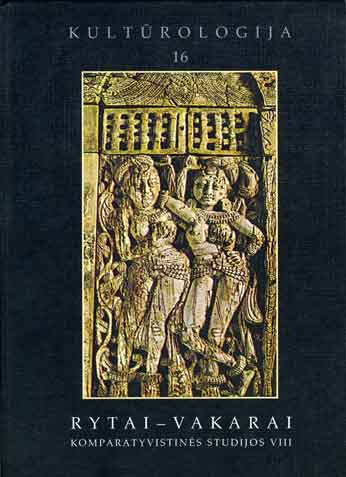Irwinas prieš saidą: du požiūriai į orientalizmą, dvi tiesos
Irwin Against Said : Two Atitudes To Wards Orientalism And Two Truths
Author(s): Daiva TamošaitytėSubject(s): Cultural Essay, Political Essay, Societal Essay
Published by: Lietuvos kultūros tyrimų
Keywords: orientalism; imperialism; postcolonialism; racism; myth; truth; humanism, politics; discourse; Islam; Arabs; East; West
Summary/Abstract: This article scrutinizes the infamous book of E. W. Said “Orientalism” and the book of another scholar, R. Irwin’s “For the Lust of Knowing” (2006), which runs counter to the previous treatise as much as to consequences of Said’s crucial influence on postcolonial studies. The author objectively shows pro and contra of both sides considering the hot discourse about imperialism, centers of power in modern world as well as in antiquity, the political role Orientalism as a science plays in that discourse, and other topics. To her opinion, two scholars represent two schools of thought: R. Irwin the conservative one, based on oriental academic cliches of XIX century and „revolutionary“ E. Said, who thinks in a modern way struggling to reconstruct and rethink out-of-date methods of knowing of Other, or subaltern and East cultures. These two contradictory positions represents confronting powers in a field as well, i. e. the political power, which just recomposes itself according to the present needs, and the power of independent intellectual and scientific thought, which refuses to work for the sake of these political purposes. The last one is a kind of civic option and prefers to do research just “for the lust of knowing” and nothing else. In spite of some shortcomings and intentional essencializations of both authors, “Orientalism”, on the one side, is very important in order to wide ones own scope of view into the ever changing world, to question scientific work and its objects as such; “For the Lust of Knowing”, on the other side, gives charming and vivid impression of medieval atmosphere in Orientalism. Reading them together it is possible to gain more versatile prospect of the past and to coin more precise methods of the future scientific approach, which would not insult neither eastern, nor western cultural or racial feelings.
Journal: Kultūrologija
- Issue Year: 2008
- Issue No: 16
- Page Range: 82-95
- Page Count: 14
- Language: Lithuanian

